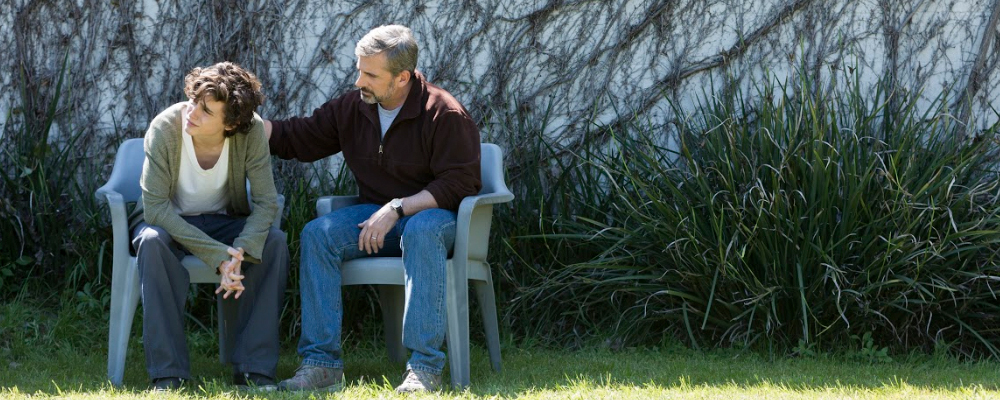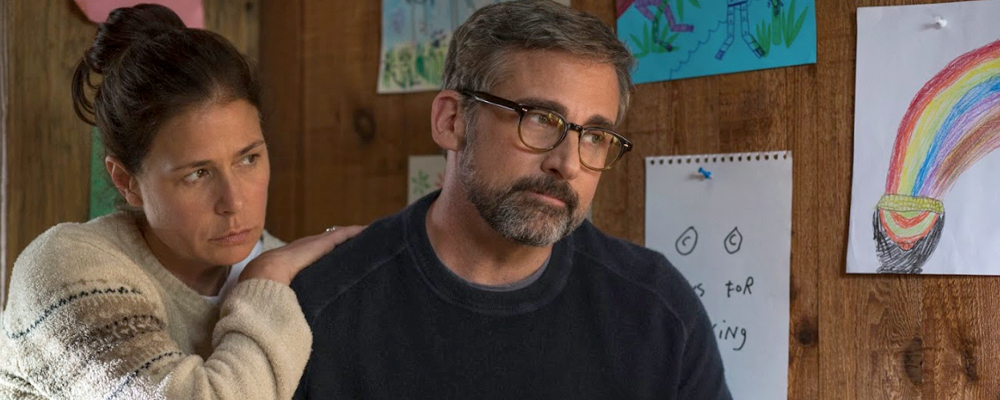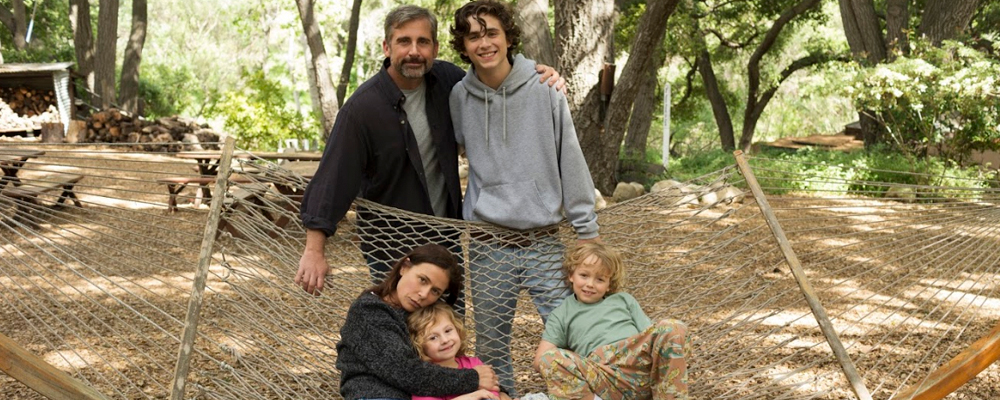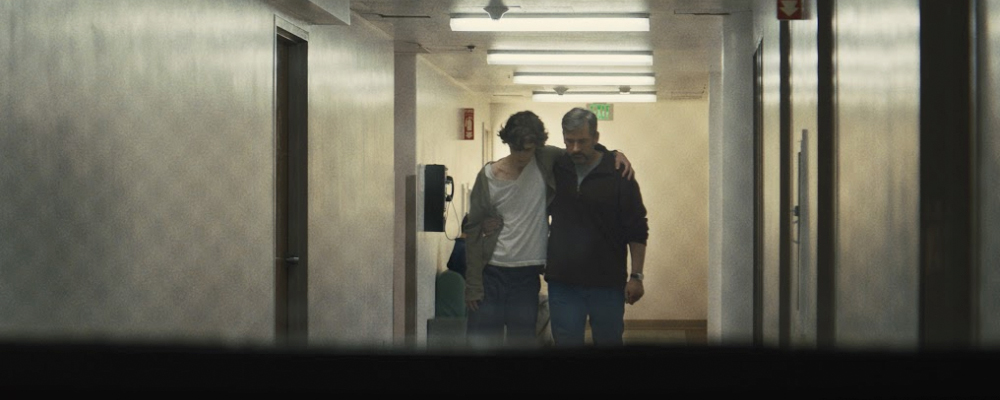‘Beautiful Boy’ Dives Into the Heartbreaking Depths of Drug Addiction
Alci Rengifo
“Beautiful Boy” tells a story of addiction with a heartbreaking, human dimension. We are quick to point fingers or try to find obvious patterns in the life of an addict, a criminal or anyone else who has taken a wrong turn, but it isn’t always so easy. In this film the vice gripping a young man is obvious, but it understands that lives and personalities are complex. This is the true story of a father who is not a bad man, but he finds himself helpless when dealing with his son’s drug problem. It is the chronicle of two lives lived in crisis.
Steve Carell plays David Sheff, a successful freelance writer who has always felt close to his son Nic (Timothée Chalamet). Life seems idealistic as Nic gets along so well with his stepmother Karen (Maura Tierney) and his two stepsiblings. But Nic has a problem, he’s a drug addict. Always regarded as bright and full life, now as a teenager he has tasted meth and heroin and is hooked. For David it’s a stunning development, and he wonders desperately how a young man who was enamored with books and feeling the call to write, can suddenly descend into an abyss of addiction. A pattern develops as Nic goes to rehab and leaves, only to look for more drugs on the street before returning home. After being sober for a while he decides to give college a chance, but before long he is again finding a vein for a needle in his arm. There is little doubt David and Karen love Nic, but they soon find themselves having to make hard choices when the easy or standard ones just don’t work.
Director Felix Van Groeningen brings this story to life by allowing the narrative to flow like a set of memories. The screenplay by Groeningen and Luke Davies is based on two memoirs, one by Scheff and the other by Nic, which recount how addiction has cast such a shadow over their lives. Because this kind of experience is harrowing in itself, Groeningen never relies on melodrama or exaggerated plot twists. He simply tells Nic’s story. The experience of addiction is laid bare, not in some stereotypical urban setting, but inside a middle class home. There is never a scene that explains it all with some easy answer. Nic is portrayed as one those individuals who is smart but also carries around some kind of loneliness. He tries drugs out of sheer curiosity and finds himself gripped by a disease. That is indeed the perfect word to describe what this film portrays, it functions as the portrait of a disease affecting an entire family. Choosing a linear style is wise because we see the utter transformation that takes place. In the early moments of the film Nic is your average, sharp college-bound student, reading for pleasure and seeming healthy. By the end he wanders the streets, calls Scheff desperately from time to time for money or will break into the family home and try to drive off. He will meet Scheff at a diner, looking like someone distantly trapped, reduced to begging. Eventually he will pull a girl from campus into his orbit and get her hooked on heroin, and the diseases spreads. By the end Nic is not even particularly likeable, but inspires compassion as a broken person.
Key to it all are the two performances by Steve Carell and Timothée Chalamet, which are some of the year’s best. For Carell this is a role of crushing pain and delicate subtly. He plays Scheff as a man smart enough to understand what is happening, but who can only go so far in what he can actually do. Moments of tearful hurt can transform into frustration. He meets with Nic and feels for his son, but can easily be cornered into shouting and demanding answers as to why he’s doing this to himself. It has been a great year for actors renowned for comedy showing off their dramatic chops. Carell, known for “The Office,” “The 40-Year-Old Virgin” and “Little Miss Sunshine,” is endearing and authentic here, delivering what could be considered his best performance to date. The quiet moments are as moving as the more emotive ones. So desperate to understand his son’s situation, Scheff goes out and buys some cocaine just to try it. Later he will force himself to remove portraits of Nic from his study, just to accept that he has done all he can. Carell plays Scheff like a man trapped in a form of living nightmare, watching his son poison himself with no magic answers. He’s not even a strict, mean person. In an early scene he casually chats with Nic while Nic smokes a joint. As with many situations in life, it’s almost hopeless to blame one specific factor.
For Chalamet this is his best role in a career that is growing fast. Last year he made his mark with “Call Me By Your Name,” where he played the young lover of Armie Hammer during a summer in Italy. That was a performance of youthful discovery and life’s heartbreaking lessons. But in “Beautiful Boy” Chalamet goes to new and searing places. His handsome features are transformed into a portrait of suffering and pain. Two scenes in particular, both involving phone calls, show us Chalamet opening up with a powerful and raw emotion. His Nic is addicted but stubborn, hurting but he must find answers on his own.
Visually Groeningen films “Beautiful Boy” with an aesthetic that conveys middle class comfort while contrasting it with the way Nic’s addiction wrecks havoc on it all. Some moments have the wistful sadness of memory, like a montage scored to a rendition of “Sunrise/Sunset.” In another moment Scheff sings John Lennon’s “Beautiful Boy” to Nic, and the moment captures everything that is tragic and moving about this story.
Many documentaries this year have addressed the drug crisis in the United States. “Beautiful Boy” addresses the issue with the force of personal drama. It does not preach, even though the end credits begin with important information, it works instead like a testimony. It wants the viewer to understand that behind the statistics of addiction, there are human lives being lived, scarred and trying to heal.
“Beautiful Boy” opens Oct. 12 in select theaters.





